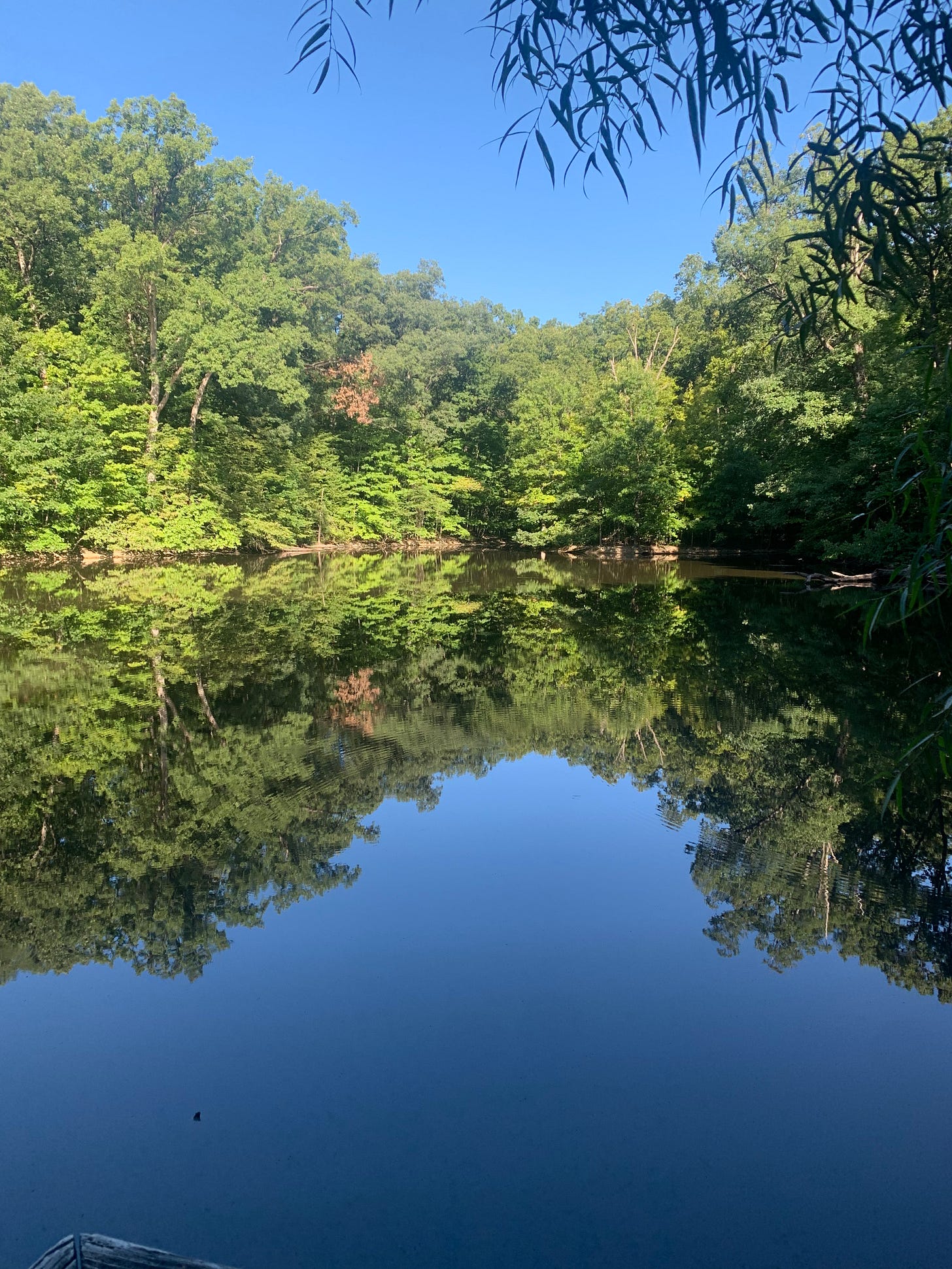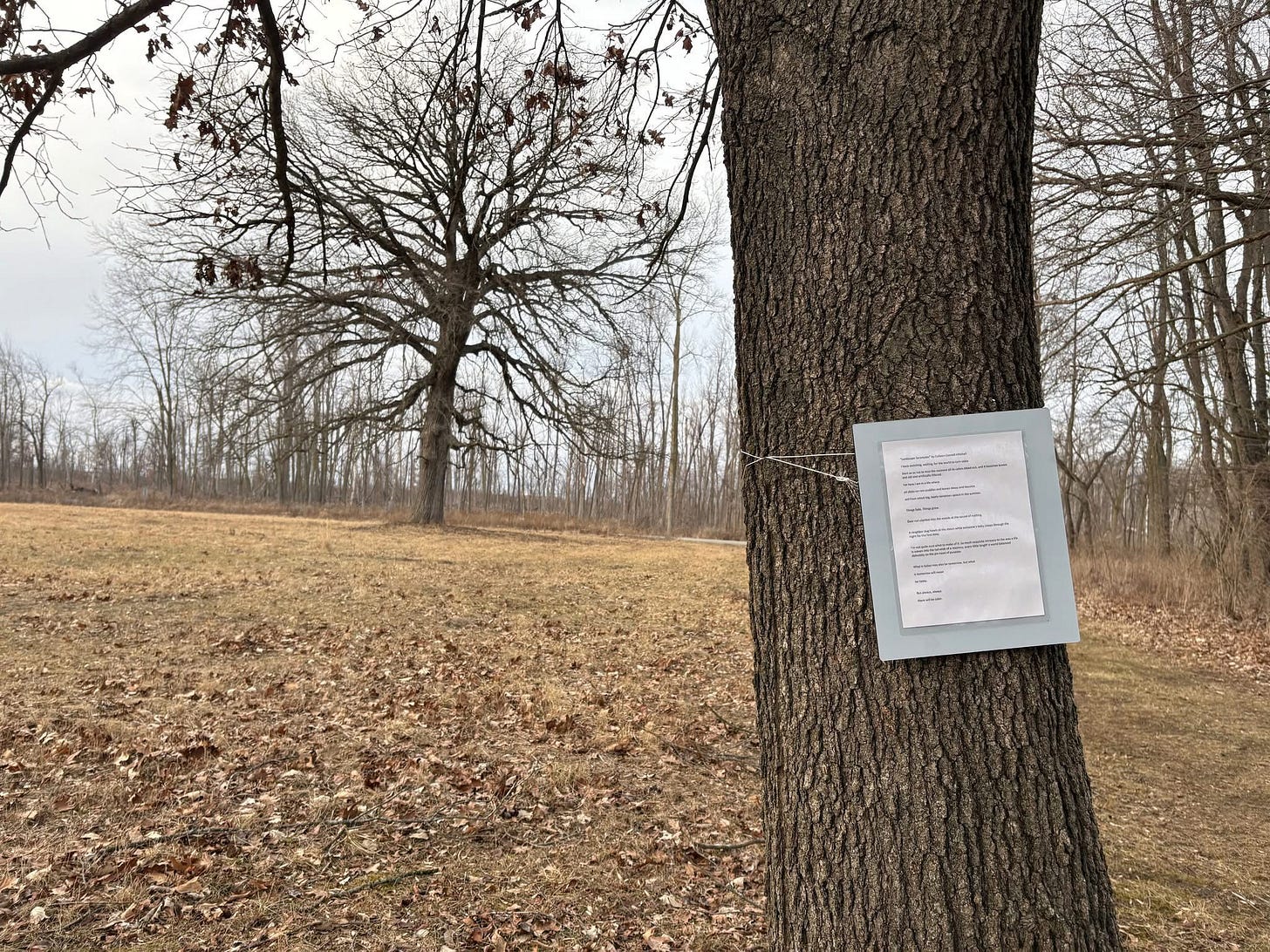Recently, a local county park put out a request for fifty winter-related poems by local poets that they would use to create a poetry walk on one of their trails. The winter walk will come down at the end of March, and spring poems will replace it. In spring, there will be artwork beside the poetry to make the walk even more magical. I have had poems accepted for both seasons, and I have often thought about how I love this idea: combining art and nature like a deep breath made with a full-bellied inhale and a long, slow exhale. It is like soil and seed, yeast and flour, a bird and its nest.
The more I think about it, the more I believe the trees have recited poetry since they sprouted from the first fertile soil to form.
The idea seems novel and, at the same time, ancient. The more I think about it, the more I believe the trees have recited poetry since they sprouted from the first fertile soil to form. Words and wisdom are the currency of the birds and the squirrels and the worms that wriggle on forest floors. Yes, it’s as if the poetry was there all along and we just discovered it together.
On cold days, a walk in the woods is an icy pleasure. We walk, gloved hands balled in coat pockets, tugging hats over exposed ears, and trying not to smile too much because the cold makes our teeth hurt. But even in the oft-perceived bitterness of winter, the forest is alive—dormant, resting—but alive. And as the leaves decompose into the forest floor, nature is nourished by its own life cycle.
There is a long-standing debate in which we wonder aloud It can’t be true that our humanity lives divided from itself.if certain traits or characteristics found in humans are innate parts of their nature, or developed based on how they are nurtured over time, especially in their young years. I have thought about this argument and wondered what its origin story might be. And questioned why we must make everything a debate. Surely everything doesn’t have to have a polar opposite that taunts it from the other side of the spectrum. It can’t be true that our humanity lives divided from itself. We’ve found a lot of ways to live in divisive times, often trading dignity and beauty as a response for angry words and extreme opinions.
It can’t be true that our humanity lives divided from itself.
But thinking of poems made by humans gracing the path of a wooded land and what a perfect fit it is, I am challenged to see a new form rising from the mist—Gaia with hands lifting the roots of the trees just high enough for them to grow full and lovely every spring, and with her mouth open in the melodic rhythms and rhymes of a poet’s voice. Here, nature and nurture live together in harmony, two things seemingly not the same but inextricably linked in the “and” that has replaced the “versus” that once walked the path between them like a first-date chaperoned eager to make sure the two never touch.
What if our bodies and our brains and our beings are made of the stuff of the natural world and the nurturing soil in which we grow? What if a walk in the woods punctuated with words is the best marriage of who we are at our core? What if it is nature that nurtures us? Perhaps then we could walk through the world with fists full of ampersands and hang them on the branches of the trees while we recite them poetry and puff our warm breath into the winter air until we can see on expand and settle on the wind, off to warm things up on the other side of the forest until we arrive.
Perhaps then we could walk through the world with fists full of ampersands and hang them on the branches of the trees
Political anxiety and anger is a natural response to what is happening in our country right now, and if you’re finding yourself needing a restful moment, may I suggest a walk in the woods and a bit of poetry with your coffee?






